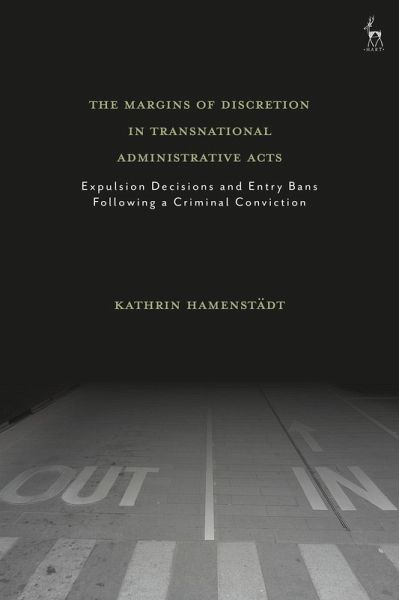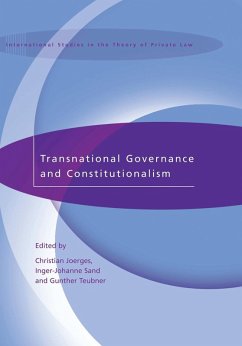
The Margins of Discretion in Transnational Administrative Acts (eBook, PDF)
Expulsion Decisions and Entry Bans Following a Criminal Conviction
Versandkostenfrei!
Sofort per Download lieferbar
34,95 €
inkl. MwSt.
Weitere Ausgaben:

PAYBACK Punkte
17 °P sammeln!
This book analyses the expulsion of delinquent foreigners and their exclusion from the territory through a comparative lens. The book begins with a vertical perspective, focusing on the effects of European standards on the law of expulsion and entry bans in Germany and the Netherlands, and the law regulating deportation from the United Kingdom. It explores how these countries use their margin of discretion, granted by European law, to solve the societal, political and legal challenges that are posed by delinquent foreigners. Moreover, it highlights the similarities, convergences and difference...
This book analyses the expulsion of delinquent foreigners and their exclusion from the territory through a comparative lens. The book begins with a vertical perspective, focusing on the effects of European standards on the law of expulsion and entry bans in Germany and the Netherlands, and the law regulating deportation from the United Kingdom. It explores how these countries use their margin of discretion, granted by European law, to solve the societal, political and legal challenges that are posed by delinquent foreigners. Moreover, it highlights the similarities, convergences and differences between these countries' approaches to the topic. Subsequently, the book adopts a horizontal perspective by focusing on the effects of national decisions on other states, thereby addressing transnational administrative acts. National expulsion decisions and entry bans can be given effect throughout European countries, with the consequence that other states are in principle obliged to enforce them by refusing foreigners access to their territory. This obligation arises despite the fact that expulsion decisions and entry bans are adopted on the basis of diverging national provisions. Even though the margin of discretion of national decision makers has already been limited, the remaining differences call for further recommendations, which are put forward in this book.













